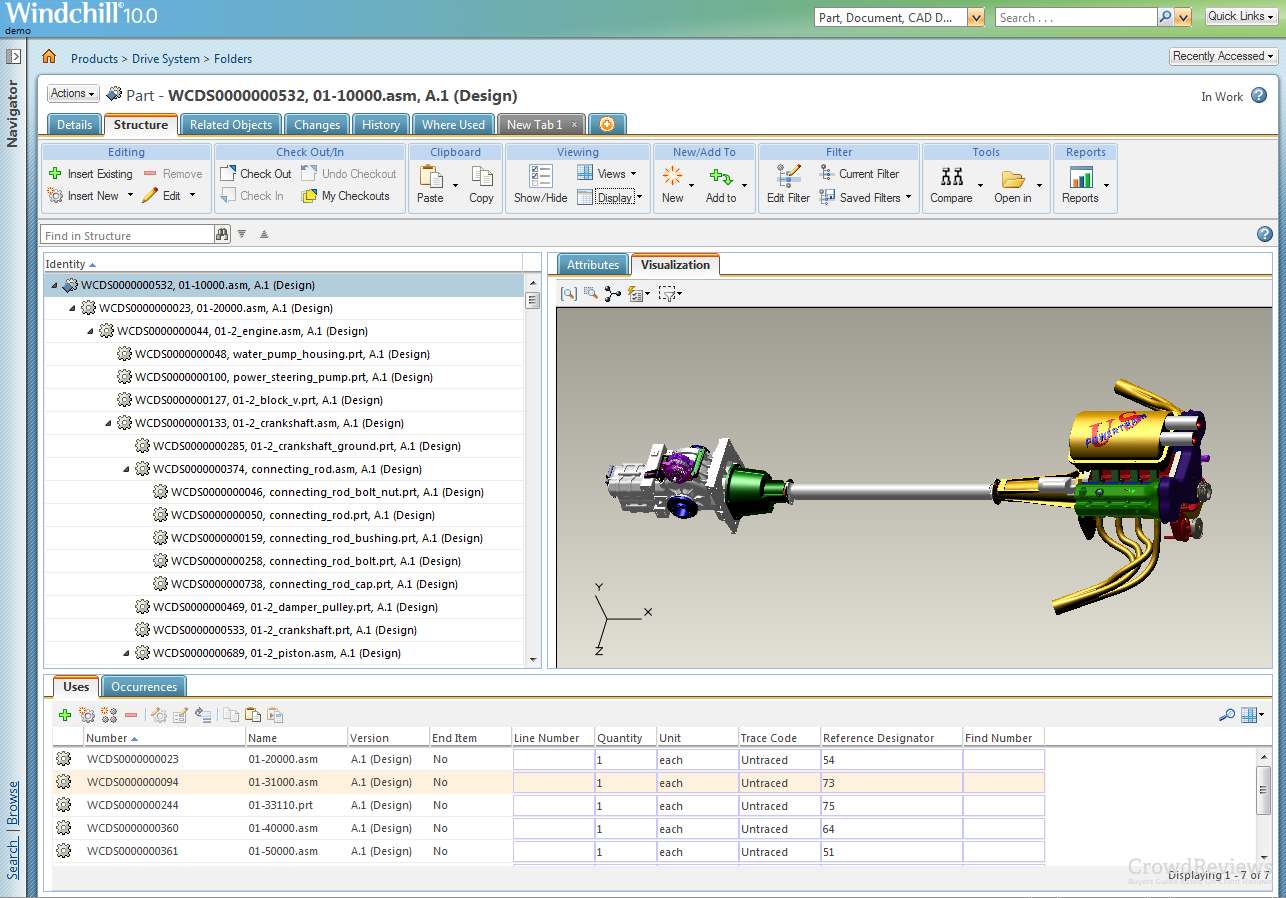PTC Windchill/FlexPLM: Complete Buyer's Guide
Specialized Product Lifecycle Management for Retail
PTC Windchill/FlexPLM positions itself as the specialized Product Lifecycle Management solution for retail, apparel, footwear, and consumer products sectors, delivering AI-powered workflows specifically designed for complex product portfolios and global supply chains [39][46].
Market Position & Maturity
Market Standing
PTC FlexPLM occupies a specialized market position as a mature, enterprise-focused PLM solution with deep retail industry expertise spanning fashion, apparel, footwear, and consumer goods sectors [39][46].
Company Maturity
PTC's established position in the broader PLM market provides financial stability and ongoing development resources that support long-term platform evolution and customer success [39].
Growth Trajectory
Growth trajectory evidence suggests continued investment in retail-specific capabilities and AI integration. The platform's evolution from traditional PLM to AI-powered retail workflows demonstrates strategic adaptation to market demands [39][46].
Industry Recognition
Industry recognition comes through documented customer success stories and implementation partnerships with major retailers. The Infosys partnership and successful deployments at companies like Brooks Brothers and Hunter Fan Company provide market validation for the platform's capabilities [40][47][48].
Strategic Partnerships
Strategic partnerships include integration relationships with major ERP vendors and design tool providers, creating an ecosystem approach that supports comprehensive retail technology stacks [39][46].
Longevity Assessment
PTC's established market position, diverse product portfolio, and enterprise customer base provide revenue stability that supports ongoing platform investment.
Proof of Capabilities
Customer Evidence
Infosys documented a comprehensive retail client transformation achieving 25% sourcing efficiency increases and 20% faster time-to-market through structured FlexPLM deployment frameworks [47].
Quantified Outcomes
Infosys implementation achieved 25% sourcing efficiency gains and 20% faster time-to-market through FlexPLM optimization [47]. Brooks Brothers reduced sample request processing from 7 hours to minutes through automated workflows [48].
Case Study Analysis
Brooks Brothers achieved dramatic process optimization, reducing sample request processing from 7 hours to minutes through ArcherGrey partnership integration and FlexPLM automation capabilities [48].
Market Validation
Market validation emerges through documented transformation timelines spanning 3-6 months for initial value realization, with full ROI potentially materializing within 12-18 months [47].
Competitive Wins
Competitive wins are evidenced through customer selections of FlexPLM over engineering-focused alternatives like Siemens Teamcenter [43][54].
Reference Customers
Reference customers span multiple retail verticals, from fashion and apparel to consumer durables and home goods, demonstrating platform versatility within retail-focused markets [40][47][48].
AI Technology
PTC FlexPLM V12 delivers intuitive, user-configurable AI and machine learning capabilities specifically engineered for retail PLM environments, distinguishing itself from engineering-focused alternatives through industry-specific algorithmic optimization [39].
Architecture
The technical foundation centers on IoT integration through ThingWorx Retail Connector, enabling seamless connections across ERP, planning systems, and 3D design tools [39][46].
Primary Competitors
Primary competitors include engineering-focused PLM platforms like Siemens Teamcenter and cloud-native alternatives such as Arena PLM [43][49][54].
Competitive Advantages
Competitive advantages center on retail industry specialization with merchandising tools and workflows specifically designed for fashion, apparel, and consumer goods sectors [39][46].
Market Positioning
Market positioning emphasizes comprehensive functionality over deployment simplicity, targeting organizations with substantial implementation resources and complex product management requirements.
Win/Loss Scenarios
Win/loss scenarios suggest FlexPLM wins against engineering-focused competitors when retail-specific functionality is prioritized, and loses to cloud-native alternatives when deployment speed or cost transparency are primary decision factors.
Key Features

Pros & Cons
Use Cases
Integrations
Featured In Articles
Comprehensive analysis of Product Lifecycle for Ecommerce for Ecommerce businesses and online retailers. Expert evaluation of features, pricing, and implementation.
How We Researched This Guide
About This Guide: This comprehensive analysis is based on extensive competitive intelligence and real-world implementation data from leading AI vendors. StayModern updates this guide quarterly to reflect market developments and vendor performance changes.
57+ verified sources per analysis including official documentation, customer reviews, analyst reports, and industry publications.
- • Vendor documentation & whitepapers
- • Customer testimonials & case studies
- • Third-party analyst assessments
- • Industry benchmarking reports
Standardized assessment framework across 8 key dimensions for objective comparison.
- • Technology capabilities & architecture
- • Market position & customer evidence
- • Implementation experience & support
- • Pricing value & competitive position
Research is refreshed every 90 days to capture market changes and new vendor capabilities.
- • New product releases & features
- • Market positioning changes
- • Customer feedback integration
- • Competitive landscape shifts
Every claim is source-linked with direct citations to original materials for verification.
- • Clickable citation links
- • Original source attribution
- • Date stamps for currency
- • Quality score validation
Analysis follows systematic research protocols with consistent evaluation frameworks.
- • Standardized assessment criteria
- • Multi-source verification process
- • Consistent evaluation methodology
- • Quality assurance protocols
Buyer-focused analysis with transparent methodology and factual accuracy commitment.
- • Objective comparative analysis
- • Transparent research methodology
- • Factual accuracy commitment
- • Continuous quality improvement
Quality Commitment: If you find any inaccuracies in our analysis on this page, please contact us at research@staymodern.ai. We're committed to maintaining the highest standards of research integrity and will investigate and correct any issues promptly.